MSRI and the American Mathematical Society (AMS) host two Congressional briefings on mathematical topics each year in Washington, D.C. to inform members of Congress and Congressional staff about new developments made possible through federal support of basic science research.
The National Science Foundation (NSF) provides the majority of funding for the basic research necessary to unlock the enormous potential applications of the mathematical sciences. AMS and MSRI appreciate the NSF’s farsighted commitment to this investment.
You can learn more about MSRI's first Congressional events that took place as part of the inaugural National Math Festival here.
December 2, 2021: Cédric Villani: "Mitigating Climate Change: Science and Policy"
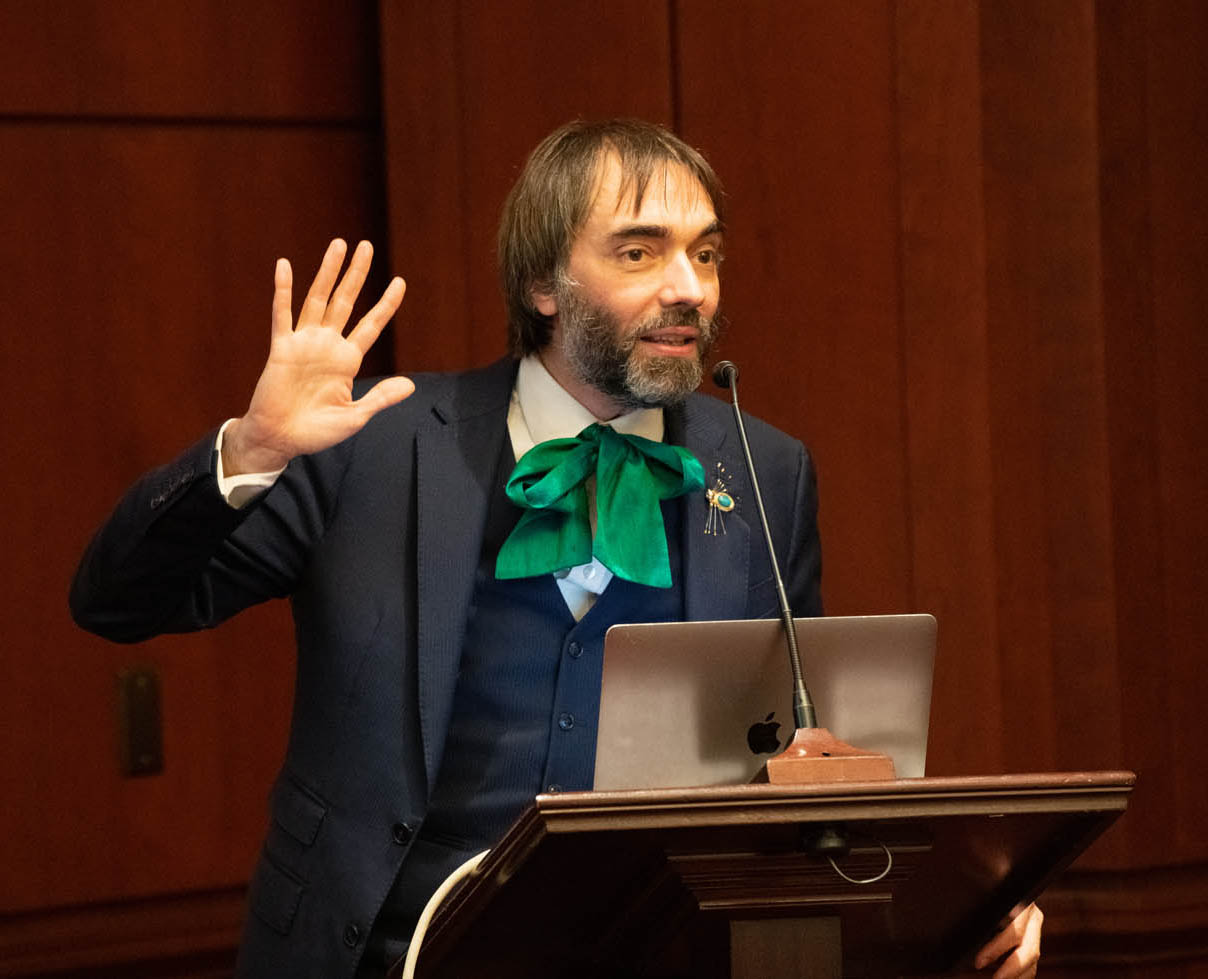 On December 2, 2021, Cédric Villani of the University of Lyon and Member, French Parliament, presented a briefing on Capitol Hill entitled "Mitigating Climate Change: Science and Policy." U.S. Senator Sheldon Whitehouse (Rhode Island) and U.S. Representative Jerry McNerney (California) were joined by MSRI Director David Eisenbud and AMS Executive Director Catherine Roberts. An event flier is available for download.
On December 2, 2021, Cédric Villani of the University of Lyon and Member, French Parliament, presented a briefing on Capitol Hill entitled "Mitigating Climate Change: Science and Policy." U.S. Senator Sheldon Whitehouse (Rhode Island) and U.S. Representative Jerry McNerney (California) were joined by MSRI Director David Eisenbud and AMS Executive Director Catherine Roberts. An event flier is available for download.
Science has been instrumental in arranging the astonishing amount of information collected about our environment into a coherent pattern. This endeavor requires interdisciplinary cooperation and relies on sophisticated mathematical models to incorporate the vast streams of data from sensors on satellites, from investigations of the atmosphere and the sea, and from ice-cores and their historical record.The result is an unusually sharp and unequivocal conclusion: strong action is needed and there is little time. So far, the world has been slow to recognize the urgency but is now waking to the need to act. Technology is rapidly adding to the means to do so. Dr. Villani discussed the policies France and Europe are putting in place to address this need.
Cédric Villani is a French mathematician, trained in École normale supérieure in Paris, currently Professor in University of Lyon. He was a visiting professor in Berkeley, Atlanta and Princeton. A specialist of mathematical analysis applied to the statistical physics of gas and plasmas, as well as non-Euclidean differential geometry, he has received numerous awards including the Fields medal, awarded every four years to at most four mathematicians under 40, often described as the Nobel Prize of Mathematics. Respected for his acclaimed synthesis books, he has received the Doob Prize of the American Mathematical Society, a prize awarded every three years to recognize a book of great novelty and clarity. He is a member of the French Academy of Sciences, as well as the Pontifical Academy of Sciences. In 2017 he was elected member of French Parliament, where he champions a number of subjects rooted in science and especially ecology. His report on Artificial Intelligence was the basis of the French Strategy of AI. He presides over the Office parlementaire d'évaluation des choix scientifiques et technologiques, or French Scientific Parliamentary Office, which studies all kinds of subjects in which a thorough scientific study is compulsory for political action. His broad-audience books have been translated in 15 languages.
December 5, 2019: Jill Pipher, Brown University - "No Longer Secure: Cryptography in the Quantum Era"
 On December 5, 2019, Jill Pipher of Brown University presented a briefing on Capitol Hill entitled "No Longer Secure: Cryptography in the Quantum Era". Members of Congress who gave remarks at the briefing included U.S. Senator Jack Reed (Rhode Island), U.S. Senator Sheldon Whitehouse (Rhode Island), U.S. Representative James Langevin (Rhode Island) and U.S. Representative Jerry McNerney (California), joined by MSRI Director David Eisenbud and AMS Associate Executive Director Karen Saxe. An event flier is available for download. (Right: Quantum computer, image courtesy of IBM)
On December 5, 2019, Jill Pipher of Brown University presented a briefing on Capitol Hill entitled "No Longer Secure: Cryptography in the Quantum Era". Members of Congress who gave remarks at the briefing included U.S. Senator Jack Reed (Rhode Island), U.S. Senator Sheldon Whitehouse (Rhode Island), U.S. Representative James Langevin (Rhode Island) and U.S. Representative Jerry McNerney (California), joined by MSRI Director David Eisenbud and AMS Associate Executive Director Karen Saxe. An event flier is available for download. (Right: Quantum computer, image courtesy of IBM)
Advances in quantum computing threaten existing secure systems that support national and economic security, necessitating new cryptographic protocols. Mathematicians are working to stay ahead of the curve, while NIST and other government research agencies are paying close attention. The future of secure communications is at stake. Cryptography researcher Jill Pipher will trace the impact of modern cryptography on network security, cybersecurity, financial transactions, private communications, and digital currencies. She will outline threats and opportunities in the quickly changing and increasingly complex environment at the beginning of the quantum era.
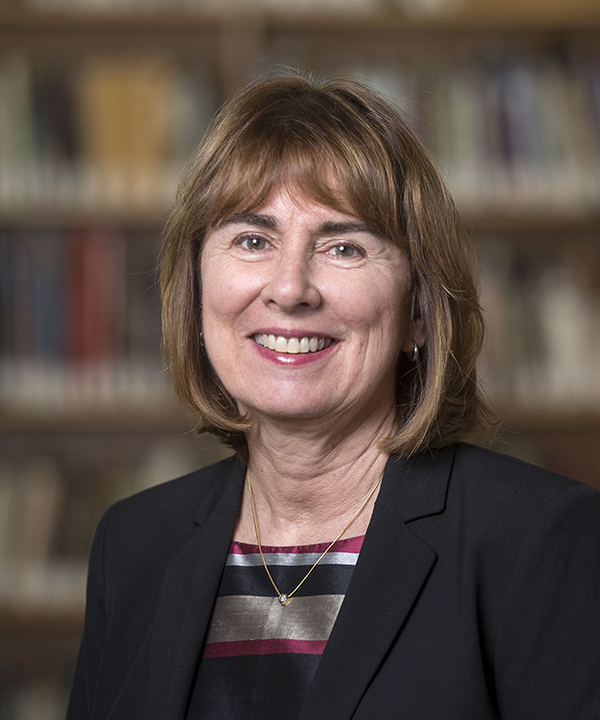 Jill Pipher is the Vice President for Research and Elisha Benjamin Andrews Professor of Mathematics at Brown University. She was the founding director of the Institute for Computational and Experimental Research in Mathematics (ICERM), a National Science Foundation mathematics institute, from 2010 to 2016, and currently serves as President of the American Mathematical Society (AMS). She is an inaugural Fellow of the AMS (2012), was President of the Association for Women in Mathematics (AWM) from 2011 to 2013, was an Invited Speaker at the International Congress of Mathematicians in Seoul in 2014, and was elected to the American Academy of Arts and Sciences in 2015.
Jill Pipher is the Vice President for Research and Elisha Benjamin Andrews Professor of Mathematics at Brown University. She was the founding director of the Institute for Computational and Experimental Research in Mathematics (ICERM), a National Science Foundation mathematics institute, from 2010 to 2016, and currently serves as President of the American Mathematical Society (AMS). She is an inaugural Fellow of the AMS (2012), was President of the Association for Women in Mathematics (AWM) from 2011 to 2013, was an Invited Speaker at the International Congress of Mathematicians in Seoul in 2014, and was elected to the American Academy of Arts and Sciences in 2015.
Pipher's research areas include harmonic analysis, partial differential equations, and lattice-based cryptography. She has published more than 60 papers and co-authored an undergraduate cryptography textbook. Pipher jointly holds four patents related to the NTRU encryption algorithm. She was a co-founder of Ntru Cryptosystems, Inc., now part of Security Innovation, Inc. Pipher's professional honors include an NSF Postdoctoral Fellowship, an NSF Presidential Young Investigator Award, and an Alfred P. Sloan Foundation Fellowship.
You can view photos from the event here, as well as a post by Karen Saxe on the AMS "Capital Currents" blog, and an article by Brown University about the event.
View a short video featuring Dr. Pipher speaking about her research:
AMS/MSRI Congressional Briefing: Dr. Jill Pipher, "No Longer Secure: Cryptography in the Quantum Era" from MSRI / National Math Festival on Vimeo.
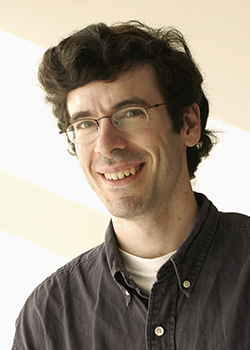
June 13, 2019: Jon Kleinberg, Cornell University - "Addressing Threats and Vulnerabilities in Critical Interconnected Systems: Common Principles in Disease Outbreaks, Internet Malware, and Bank Failures"
On June 13, 2019, Jon Kleinberg of Cornell University spoke on Capitol Hill on "Addressing Threats and Vulnerabilities in Critical Interconnected Systems". Speakers at the Congressional briefing included MSRI Director David Eisenbud and AMS Associate Executive Director Karen Saxe. An event flier (PDF) is available for download.
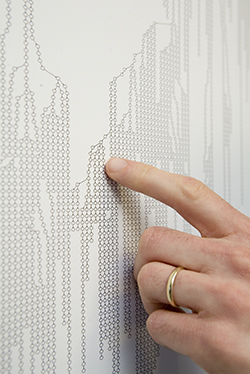
A vital feature of many critical systems in society is their connectivity—they are built from large numbers of components linked together in a network. This structure makes it possible to build them at large scales, but it also puts them at risk of cascading breakdowns, when a problem in one component spreads to others. We consider mathematical models originally developed for epidemic diseases, where a small change in the connectivity of the population or the infectiousness of the disease can lead to large changes in the reach of the outbreak. We then consider how these models apply when developing detection techniques and countermeasures for risks to highly interconnected systems, including malware on the Internet and cascading failures in banking systems.
Jon Kleinberg is the Tisch University Professor in the Departments of Computer Science and Information Science at Cornell University. His research focuses on the interaction of algorithms and networks, and the roles they play in large-scale social and information systems. He is a member of the National Academy of Sciences and the National Academy of Engineering, and has served on the Computer Science and Telecommunications Board (CSTB) of the National Research Council and the Computer and Information Science and Engineering (CISE) Advisory Committee of the National Science Foundation. He is the recipient of research fellowships from the MacArthur, Packard, Simons, and Sloan Foundations, as well as awards including the ACM Prize in Computing and the Nevanlinna Prize from the International Mathematical Union.
You can view photos from the event here, or read a full report of the event as featured in the October 2019 edition of the Notices of the American Mathematical Society.
Additional coverage can be found in this article from Cornell University.
View a short video featuring Dr. Kleinberg talking about his research:
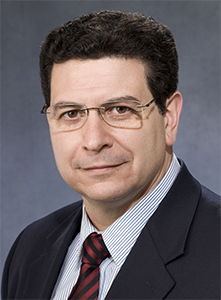
December 4, 2018: Rodolfo H. Torres, University of Kansas - "From the Color of Birds to Nanomaterials and New Technology"
On December 4, 2018, Rodolfo H. Torres of the University of Kansas spoke on Capitol Hill on "From the Color of Birds to Nanomaterials and New Technology". Speakers at the Congressional briefing included MSRI Director David Eisenbud and AMS Associate Executive Director Karen Saxe. An event flyer (PDF) is available for download.
 Surprisingly, investigating the beautiful coloration of bird feathers with mathematical tools has led scientists to new technologies in the fabrication of materials of highly saturated colors, adaptive camouflage properties, and efficient photovoltaic attributes. Fundamental mathematics research has explained the origin of the blue and green colors of birds and other animals and revealed the existence of intricate photonic crystal structures. These astonishing structures provide inspiration for research involving nanomaterials. Nanomaterials are already commercialized, and are used in a variety of manufacturing processes, products and healthcare including in artificial enzymes, paints, filters,insulation, and lubricant additives.
Surprisingly, investigating the beautiful coloration of bird feathers with mathematical tools has led scientists to new technologies in the fabrication of materials of highly saturated colors, adaptive camouflage properties, and efficient photovoltaic attributes. Fundamental mathematics research has explained the origin of the blue and green colors of birds and other animals and revealed the existence of intricate photonic crystal structures. These astonishing structures provide inspiration for research involving nanomaterials. Nanomaterials are already commercialized, and are used in a variety of manufacturing processes, products and healthcare including in artificial enzymes, paints, filters,insulation, and lubricant additives.
Like a prism that decomposes a beam of light into a rainbow of colors, Fourier analysis transforms electron microscope images of tissues of living organisms into a mathematical rainbow of basic components. Fourier analysis has been an extraordinarily powerful mathematical tool since its development 200 years ago, and has current applications from a wide range of modern scientific fields—in digital image processing, forensics, option pricing, cryptography, optics, oceanography,protein structure analysis and other areas.
Rodolfo H. Torres is a University Distinguished Professor of Mathematics at the University of Kansas. He has also served for six years in Office of Research, first as Associate Vice Chancellor and then until recently as the Interim Vice Chancellor and President of KU Center for Research Inc. He was named Fellow of the American Mathematical Society in the society's inaugural class. His research has been funded by the National Science Foundation for the past 25 years and includes collaborations with biologists, engineers, and economists.
You can view photos from the event here, or read a full report of the event as featured in the April 2019 edition of the Notices of the American Mathematical Society.
You can watch this short video featuring Dr. Torres talking about his research, with highlights from the event:
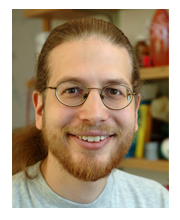
May 22, 2018: Erik Demaine, Massachusetts Institute of Technology - "Origami Meets Math, Science, and Engineering"
On May 22, 2018, Erik Demaine of the Massachusetts Institute of Technology (MIT) spoke on Capitol Hill on "Origami Meets Math, Science, and Engineering". Speakers at the Congressional briefing included Representative Jerry McNerney of California, MSRI Director David Eisenbud, AMS Associate Executive Director Karen Saxe, and AMS President Ken Ribet (University of California, Berkeley). An event flyer (PDF) is available for download.
Surprising applications in manufacturing, robotics, animation, biology, meicine, nanotech, and space technology have grown from new fundamental research in computational origami, the study of the mathematical and geometric underpinnings of the simple act of folding. Erik Demaine, MacArthur Fellow and MIT computer scientist, has been instrumental in these developments.
Dr. Demaine is also an acclaimed artist, and was featured on NOVA's "The Origami Revolution." His works have been shown at major museums, and his pieces are in the permanent collections of Washington D.C.’s Smithsonian Renwick Gallery and New York’s Museum of Modern Art (MoMA).
You can view photos from the event here, or read a full report of the event as featured in the January 2019 edition of the Notices of the American Mathematical Society.
You can watch this short video featuring Dr. Demaine talking about his art and research, with highlights from the event:
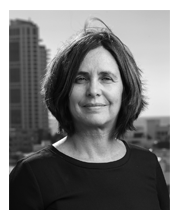
December 6, 2017: Shafi Goldwasser, Massachusetts Institute of Technology
On December 6, 2017, Shafi Goldwasser of the Massachusetts Institute of Technology (MIT) and incoming Director of the Simons Institute for the Theory of Computing at the University of California, Berkeley, spoke on Capitol Hill on "Cryptography: How to Enable Privacy in a Data-Driven World".
Speakers at the Congressional briefing included House Minority Leader Nancy Pelosi, Representative Jerry McNerney of California, and Representative Dan Lipinski of Illinois. An event flyer is here.
You can view photos from the event here.
In the last 40 years, the field of cryptography has shown how to use basic mathematics to enable secure electronic commerce. Nowadays, we are faced with a new challenge. Medical breakthroughs, smart infrastructure, economic growth by clever consumer targeting, and surveillance for national security, have become possible due to the enormous amounts of data collected on individuals. Yet, this data collection seems to stand in contradiction to patients' rights, consumers' privacy, unfair pricing, and the basic 'Right to be Left Alone'. The question is, can mathematics and technology make it possible to maintain privacy and make progress at the same time? We will show how modern encryption methods, zero-knowledge proofs, and multi-party secure computation go a long way to get the best of both worlds.
We hope you enjoy a 3-minute movie, showing a behind-the-scenes peek at briefing day in Washington!
Dr. Shafi Goldwasser is the RSA Professor of Electrical Engineering and Computer Science at MIT. Goldwasser's pioneering contributions include the introduction of zero-knowledge interactive proofs, protocols, and multi-party secure protocols, which are key technologies for online identification, utilizing blockchains for distributed transactions and for data-intensive collaborations in regulated industries. Dr. Goldwasser was the recipient of the ACM Turing Award for 2012, the highest award given in the field of computer science, as well as the Gödel Prize in 1993 and 2001, the ACM Grace Murray Hopper Award, the RSA Award in Mathematics, the ACM Athena Award for women in computer science, the Benjamin Franklin Medal, and the IEEE Emanuel R. Piore Award. She is a member of the American Association for the Advancement of Science (AAAS), the National Academy of Sciences (NAS), the National Academy of Engineering (NAE), the Israeli Academy of Science, and the Russian Academy of Science. She is an honorary member of the London Royal Mathematical Society and holds honorary degrees from universities around the world.
Goldwasser received a B.S. degree in applied mathematics from Carnegie Mellon University in 1979, and M.S. and Ph.D. degrees in computer science from the University of California, Berkeley, in 1984. She will be joining the University of California, Berkeley in 2017 as the Director of the Simons Institute for the Theory of Computing.
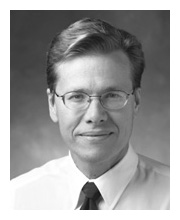
June 28, 2017: David Donoho, Stanford University
On June 28, 2017, David Donoho, Professor of Statistics at Stanford University, presented "Blackboard to Bedside: How high-dimensional geometry is transforming the MRI industry" at the Russell Senate Office Building in Washington, D.C. An event flier is here.
You can view photos from the event here.
Among the attendees of the event were Senator Charles Schumer and Leader Nancy Pelosi, both of whom gave remarks.
Recently the FDA approved a device for dynamic cardiac imaging that gathers data 15 times faster than before and another device that speeds up 3D brain imaging by a factor of 8. The speedup will allow more patients to be served at a lower cost per patient, giving US taxpayers a better return on the tens of billions of dollars in annual MRI charges. Professor Donoho's presentation tells the story of how U.S. investment in basic research in the mathematical sciences led to this breakthrough.
Dr. Donoho is a MacArthur Fellow and National Academy of Sciences member. One of the world’s leading mathematical statisticians, he is currently the Anne T. and Robert Bass Professor of Humanities and Sciences and professor of statistics, Stanford University. His Stanford patents on compressed sensing are licensed by both GE and Siemens in their new generation FDA-approved scanners.
You may view the full-length interview below, or the five-minute highlights, as it traces:
- How both young children and older patients will benefit from the new technology;
- How the charismatic proof of mathematics opened the door for corporate investment;
- How the mathematics of random sampling undergirds diagnostic certainty;
- The story arc of Federal funding that made a 10-year progression possible, from blackboard to bedside.
This development holds the promise that many patients who today do not receive MRI imaging at all—prior to brain or heart surgery, or whose imaging is delayed, cost-prohibitive, or non-diagnostic in quality, now will have more readily available, diagnostically meaningful scans at lower cost. The savings of lives, the improved surgical preparation and outcomes, and the ability to use MRI imaging technology to inform a wider range of medical conditions in neurosurgery, cardiac, and other applications, is significant for patients of all ages.
Additional Materials
Here is a PDF summary by Professor Donoho of many of the points he made in his briefing for those who would like further information.